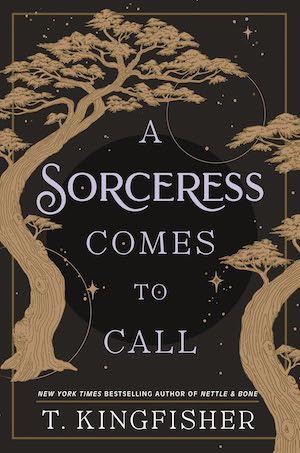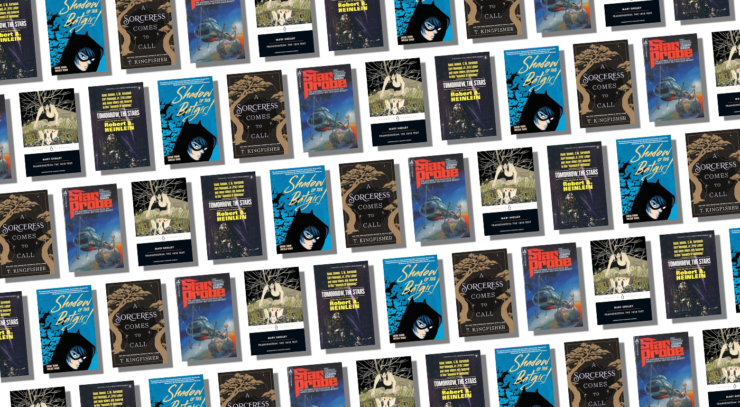Reactor previously published my thoughts and suggestions on how to manage parents in speculative fiction. Of course, there’s another sort of parent: the irredeemably bad parent. Indifferent, incompetent, even malicious. Such parents are bad for their kids, but great for authors (as evidenced by the fact that we’ve discussed atrocious parenting here before). Many exciting plots result from the child’s effort to escape the parent or to deal with the consequences of a toxic upbringing.
Herewith, five works about irredeemably bad parents.
Frankenstein; or, The Modern Prometheus by Mary Shelley (1818)

Victor Frankenstein is wealthy, driven, and brilliant. When Victor sets his mind to creating life (or at least reanimating dead tissue), nothing—social convention, the monumental R&D required, simple prudence—stops him until he finally succeeds in his quest. Victor’s Creature lives!
Victor is also shallow and easily repulsed. His Creature being ugly, Victor abandons it to survive or not as fate decrees. When the Creature re-enters Victor’s life, begging Victor to create a female Creature to share the Creature’s life, Victor agrees… only to dash the Creature’s hopes and inflame the Creature’s homicidal fury.
The poor Creature must not only deal with an alarming appearance and a dreadful father, but it has the misfortune of having read Goethe’s 1774 Die Leiden des jungen Werthers, a ludicrous paean to wretched emotional excess. This was arguably the worst book possible1 (of those available at the time2) to hand to a distraught, socially isolated autodidact. Nevertheless, if Victor had been a better father figure, or a father figure at all, the Creature might well have weathered reading Goethe at an impressionable age.
“Absalom” by Henry Kuttner and C.L. Moore (1946)

(Collected in Tomorrow, the Stars) Unlike Victor, Joel Locke is no negligent father. A former child genius, Joel is determined to provide his son Absalom with the careful mentoring that Joel’s intellectually inferior, tyrannical father could not supply. Joel controls every aspect of Absalom’s life, guiding Absalom towards fruitful educational avenues and away from subjects for which the ten-year-old is not yet ready.
Absalom has a different interpretation of the facts. Absalom is certain that, whether or not Joel is consciously aware of his true motivation, Joel is terrified that Joel will be as overshadowed by Absalom, as Joel’s father was by Joel. Joel is not trying to help Absalom be the best Absalom. Joel is trying to stunt his son. As brilliant as Joel is, Absalom is smarter. Joel is doomed to fail.
Star Probe by Joseph Green (1976)

In 2011, an alien star probe is detected en route past Earth. The World-Gov opts for prudence. Rather than risk retaliation by the product of an immeasurably superior civilization, World-Gov will not authorize any attempt to intercept or destroy the probe. Harold “Jesus” Hentson’s Rockets International decides to intercept the probe without the formality of official sanction.
RI can get a crewed ship to the alien probe. A safe return is impossible unless the astronaut can somehow refuel at the destination. Harold has the perfect candidate for the likely suicide mission. Harold’s dead father Jarl was a skilled astronaut whose mind was very conveniently recorded on tapes. Harold’s son, also Jarl, has a severe cognitive deficit but is otherwise healthy. All that needs to be done is to decant old Jarl into young Jarl, then send a dead man in the body of a young man nobody will miss on a one-way mission to glory.
However you are imagining the consent issues had to have been handled, the reality is worse. Old Jarl is too dead to provide informed consent, young Jarl is not capable of giving it, and really, Harold isn’t that interested in what either might say beforehand. He just wants a mission to that alien probe.
Shadow of the Batgirl by Sarah Kuhn and Nicole Goux (2020)

David Cain was an eminently terrible parent. Determined to turn his daughter Cassandra into a weapon, Cain denied Cassandra access to all but the most rudimentary speech and subjected her to rigorous martial arts training. Result: a girl who could barely speak but to whom body language was an open book. A girl who killed without mercy because she did not know mercy.
Cain’s plan worked flawlessly until it failed abjectly. A single word from a victim sent Cassandra fleeing from David Cain. Gotham is a daunting city in which to reinvent oneself, lacking as it does any sort of useful social services. But there are kindly individuals. It was to kindly librarian Barbara Jordan and diner owner Jackie that Cassandra turned.
In David Cain’s defense, at least he did not, as X-Bomb Betty’s father did, imbue her with the ability to explode in a 150-megaton explosion… once. Otherwise, Cain was such a comprehensively awful dad that he manages to make the Batman Family (turning damaged kids into violent vigilantes) look good.
A Sorceress Comes to Call by T. Kingfisher (2024)

Evangeline demands unquestioning obedience of her daughter Cordelia. Cordelia gives in—not so much because Cordelia wants to please her mom, but because Evangeline is a powerful sorceress who can and often does turn Cordelia into a meat-puppet to ensure her compliance.
Having been forced to brutally murder her disappointing lover, Evangeline needs a new, easily swayed, rich benefactor. Squire Samuel Chatham appears an ideal match. Evangeline has no trouble installing herself at Chatham House as guest, then as the Squire’s fiancée. Evangeline has made a fatal miscalculation. Just as Chatham House offers Evangeline a potential husband, it offers Cordelia something she has never had before: allies who could help Cordelia free herself from her evil mother.
There are novels whose grand antagonists turn out to have relatable reasons for doing the terrible things that they do. Sorceress is not one of those books. Evangeline has no redeeming features and probably would only see any such features as laughable weaknesses.
The above-mentioned characters are only a small sample of the appalling parents I could have mentioned. Perhaps you have your favorites not mentioned above. Feel free to mention them in comments below.
- Die Leiden des jungen Werthers is famous for having inspired copycat suicides amongst its more excitable fans. Readers may recall that the last thing the Creature does is sail off into the Arctic, planning to burn himself alive. ↩︎
- Atlas Shrugged was not available at the time. Even if it had been, the worst-case scenario is that the Creature would have become an evangelical Objectivist, which, while annoying, would still arguably have been an improvement on the trail of carnage that the Creature left in its wake in Frankenstein. ↩︎










